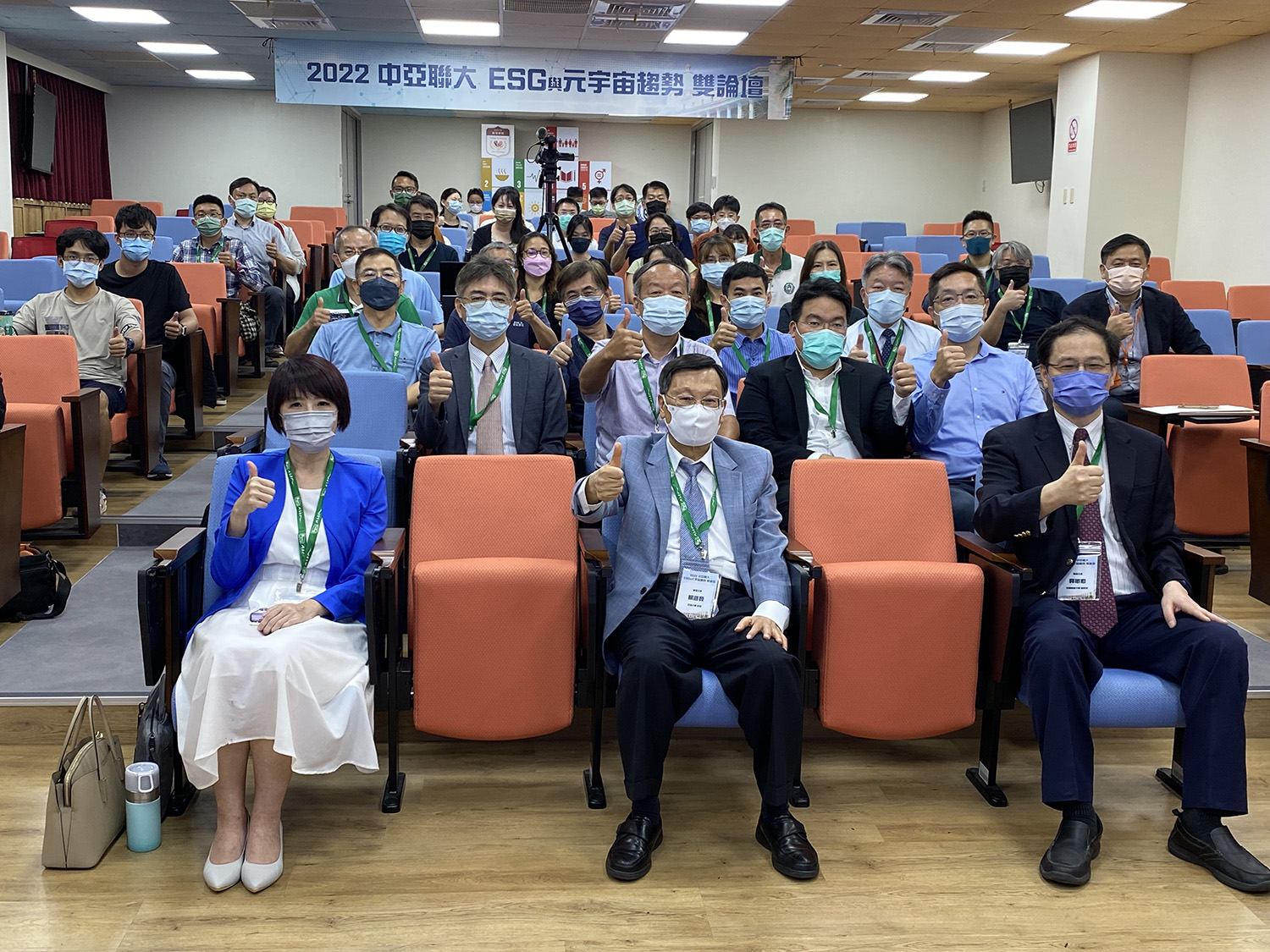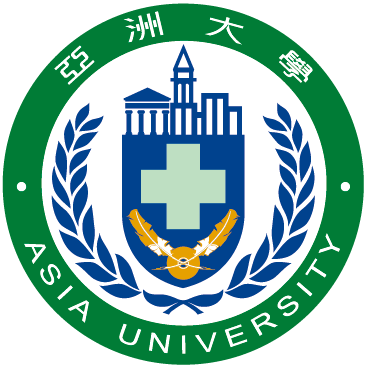Are you ready for the coming of the ESG (Environment, Social and Governance) waves? Asia University and China Medical University jointly held an ESG and Metaverse Forum, inviting specialists, scholars and members of industries the world over to share their expertise and experiences on July 26, 2022. More than 200 participants registered for the Forum both online and in person. They attended lectures and learned how to apply the Metaverse concept to ESG topics and how to integrate industry capabilities and academic knowhow to co-develop ESG sustainability and to cultivate digital and economical talents on Metaverse Web 3.0.

Professor Jeffrey J.P. Tsai (front middle), President of Asia University, and Professor Joyn S. Kuo (front right), Vice President of China Medical University, joined 2022 ESG and Metaverse Forum
Professor Jeffrey J.P. Tsai, President of Asia University, stated in his opening remarks that global warming and extreme climate changes are affecting our lives. “Asia University,” as he said, “is a Green Garden University where more than 10,000 trees were planted on campus since the founding of the university in 2000.” The university currently offers 1460 courses annually, integrating 17 SDG’s ideas into different subjects and disciplines, thereby aiming to cultivate the so-called Green Gold Talents for future global development. In addition, many courses on Metaverse concepts and skills are also offered to prepare students for the future world of virtual reality. Asia University is moving toward to a metaverse University focusing on human-centered and innovative-oriented education.
All the invited speakers took turns to speak to the audience. Professor Joyn S. Kuo, Vice President of China Medical University, talked about the influence of climate change, emphasizing the importance of education which could bring new concepts and new skills to meet the global challenges.
Ms. Yu-chun Yeh, Senior Associate of General Manager Office of Taiwan Cement Corporation (TCC), mentioned in her talk that water is the No. 1 natural resource we rely upon for life, and surprisingly cement is the second one. Can the cement industry play a role in solving social problems? She tried to answer that intriguing question in her presentation. As she said, cement is a by-product of the development of human civilization. Over the years, TCC has transformed itself from a highly environmental-contaminated traditional industry into a company which now produces low carbohydrate cement, recycle circles and green energy as its top 3 core businesses. From high temperature cement kilns to daily waste management, many of TCC’s cement factories are turning themselves into tourist hotspots, and this transformation further proves that an advanced industry can create a positive impact on the development of our communities.
Yang-Chien Chang, the CEO of Delta Electronics Foundation, argued that only 6 years and 11 months are left before the so-called 1.5 Celsius limit arrives. He reminded the audience that global warming is happening now. If we do not control and reduce the emission of gases, reaching 1.5c limit can bring unimaginable change to the world. Accordingly, Delta Electronics Foundation will keep focusing on the issue of coral bleaching because rising temperatures are worsening the coral crisis. Yang-Chien Chang added that the earth is facing the 6th mass extinction, caused mainly by human beings. Now Delta Electronics Foundation is cultivating coral reefs on the northeast coast of Taiwan and uses AI to identify coral reef species. The Foundation also invited artists to create earth art works, “The Birth,” which is to be presented at Asia University’s Museum of Modern Art soon.
Jung-Sen Pan, Senior Manager of Amazon Internet Service Corporation, brought the participants to the Metaverse world via the cyberman in the film, “Blade Runner 2049.” He encouraged the audience to construct a metaverse eco-system and advance a better metaverse civilization.
Chin-wei Lee, founder of MomentX, pointed out that the internet Web 3.0 is the key to the metaverse future. The virtual internet eco-system is featured by the decentralization of Web 3.0. Users can own their virtual properties. They not only share their daily social life but also live in it. This metaverse social network can create greater business opportunities than those cell phones enable.
The Forum ignited the participants’ interests and enthusiasm in applying the metaverse skills to their lives. “Asia University,” as President Tsai stated, “is committed to promoting the education of ESG and Metaverse, fulfilling its goal as a USR university.”





